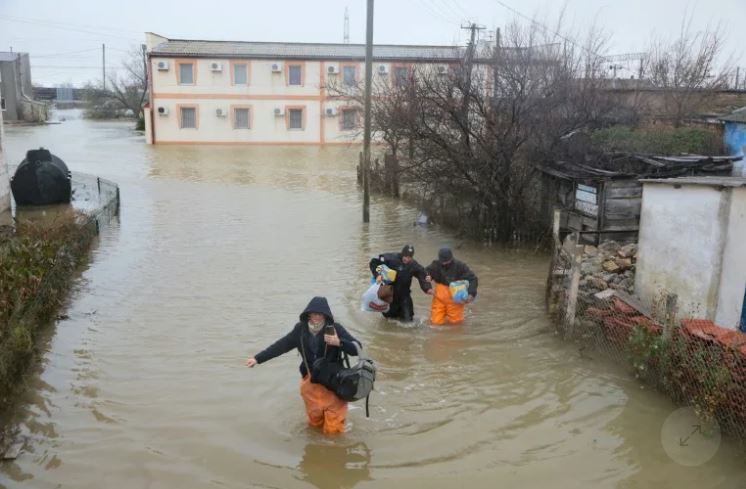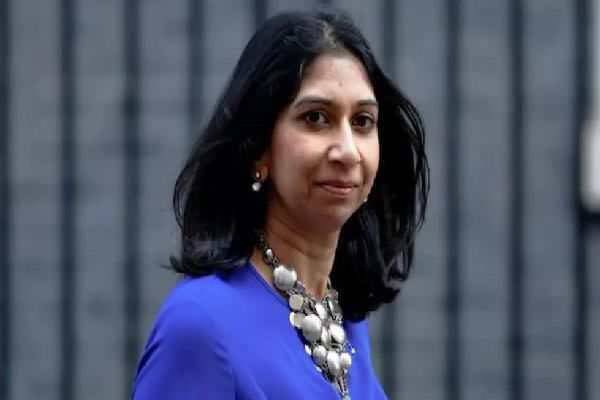Hundreds of thousands of people attend anti-far right protests across Germany
By KnowledgeVeto Sunday, January 21, 2024 23:15
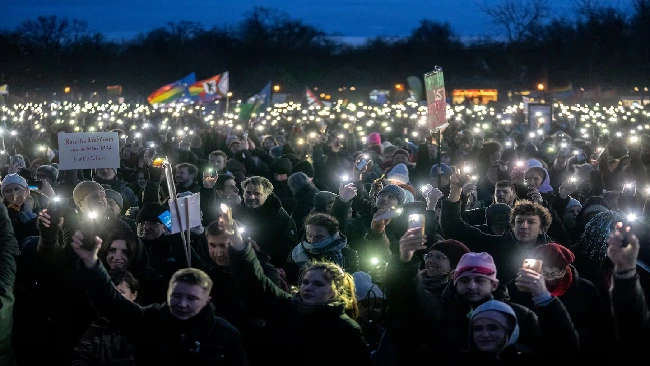
© Images Provided By (AP Photo/ Ebrahim Noroozi)
A lady holds a banner saying "That's exactly how it started back then" during a demonstration against the AfD party and right-wing extremism in front of the Reichstag building in Berlin, Germany, on Sunday, January 21, 2024. (AP Photo/ Ebrahim Noroozi)
According to German authorities, a rally against the extreme right in Munich on Sunday afternoon ended early due to safety concerns, despite the fact that roughly 100,000 people attended.
BERLIN -- A protest against the far right in Munich, Germany, concluded early Sunday afternoon owing to safety concerns after around 100,000 people turned up, according to police. This weekend, hundreds of thousands of people participated in dozens of demonstrations across the country.
The demonstrations followed a revelation that right-wing radicals recently convened to discuss deporting millions of immigrants, including some with German citizenship. Some members of the far-right Alternative for Germany party, or AfD, attended the gathering.
Police in the western city of Cologne acknowledged that "tens of thousands" of people protested on Sunday, with organizers estimating that there were roughly 70,000. According to the German news agency dpa, at least 60,000 people participated in a protest in Berlin on Sunday afternoon.
A similar march Friday in Hamburg, Germany's second-largest city, gathered an estimated 50,000 people and had to be cut short due to safety concerns. Saturday protests in other German towns, including Stuttgart, Nuremberg, and Hannover, drew tens of thousands.
Although Germany has seen significant rallies against the extreme right in recent years, the size and extent of this weekend's demonstrations — not only in large cities, but also in dozens of smaller places across the country — are noteworthy. The massive turnout in Germany demonstrated how these protests are driving popular opposition to the AfD in new ways.
The AfD is riding high in opinion polls: latest surveys position it second nationally with over 23%, substantially exceeding the 10.3% it earned in the previous federal election in 2021.
The AfD is topping surveys in its eastern German strongholds of Brandenburg, Saxony, and Thuringia ahead of this fall's elections.
The protests were sparked by a story last week by the online outlet Correctiv about an alleged far-right conference in November attended by members of the radical Identitarian Movement and the AfD. Martin Sellner, an Austrian citizen and prominent member of the Identitarian Movement, offered his "remigration" concept for deportation, according to the report.
The AfD has attempted to disassociate itself from the extremist meeting, claiming that it has no organizational or financial ties to the event, that it is not responsible for what was stated there, and that members who went did so simply for personal reasons. Nonetheless, Alice Weidel, one of the AfD's co-leaders, has parted ways with an adviser who was present, while also criticizing the reporting itself.
Prominent German politicians and elected officials expressed support for the protests on Sunday, joining leaders from major parties across the political spectrum who had previously spoken out.
"The future of our democracy does not depend on the volume of its opponents, but on the strength of those who defend democracy," German President Frank-Walter Steinmeier stated in a video. Those who came out to protest, he said, "defend our republic and our constitution against its enemies."
![]() Related Video:Across Germany, anti-far right protests draw hundreds of thousands - in Munich, too many for safety (WGN News)
Related Video:Across Germany, anti-far right protests draw hundreds of thousands - in Munich, too many for safety (WGN News)
Katrin Delrieux, 53, told the AFP news agency in Munich that she hoped the protests against the far right would "make a lot of people rethink" their views.
"Some might not be sure whether they will vote for the AfD or not, but after this protest, they simply cannot," she went on to say.
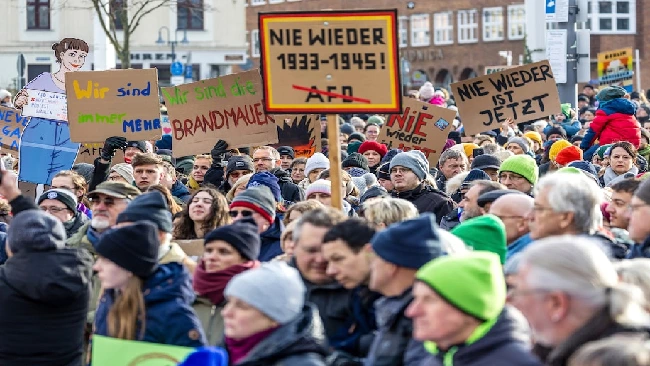
Protester Steffi Kirschenmann told Reuters in Frankfurt that the rallies are "a signal to the world that we won't let this happen without commenting on it".
Meanwhile, in Dresden, the capital of eastern Saxony, where the far-right party is ahead in surveys, officials had to change the route of a protest march.
The parade was extended to accommodate a "enormous number of participants," Dresden police announced on the social media platform X.
German Chancellor Olaf Scholz, who attended a demonstration last weekend, emphasized that any intention to expel immigrants or citizens alike was "an attack against our democracy, and, in turn, on all of us".
He issued a call for "all to take a stand - for cohesion, for tolerance, for our democratic Germany".
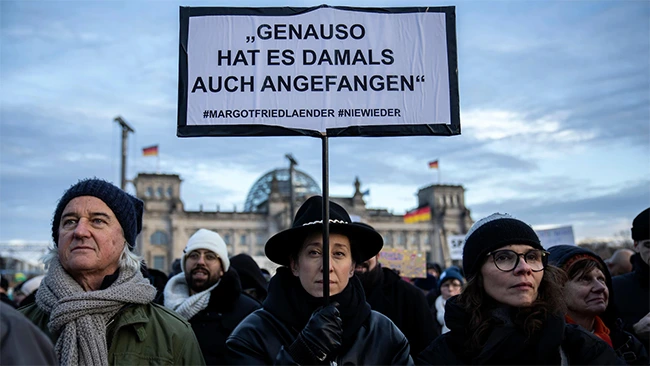
People protest in Berlin People hold up their cell phones as they protest against the AfD party and right-wing extremism in front of the Reichstag building in Berlin (AP) (Ebrahim Noroozi/AP)
On Sunday, demonstrators outside the German parliament in Berlin carried signs that said "no place for Nazis" and "Nazis out".
In its eastern German strongholds of Brandenburg, Saxony and Thuringia, the AfD is leading the polls ahead of elections this autumn.




